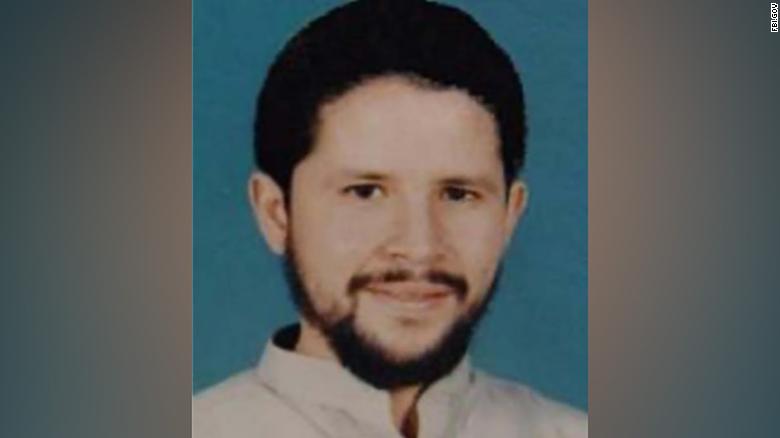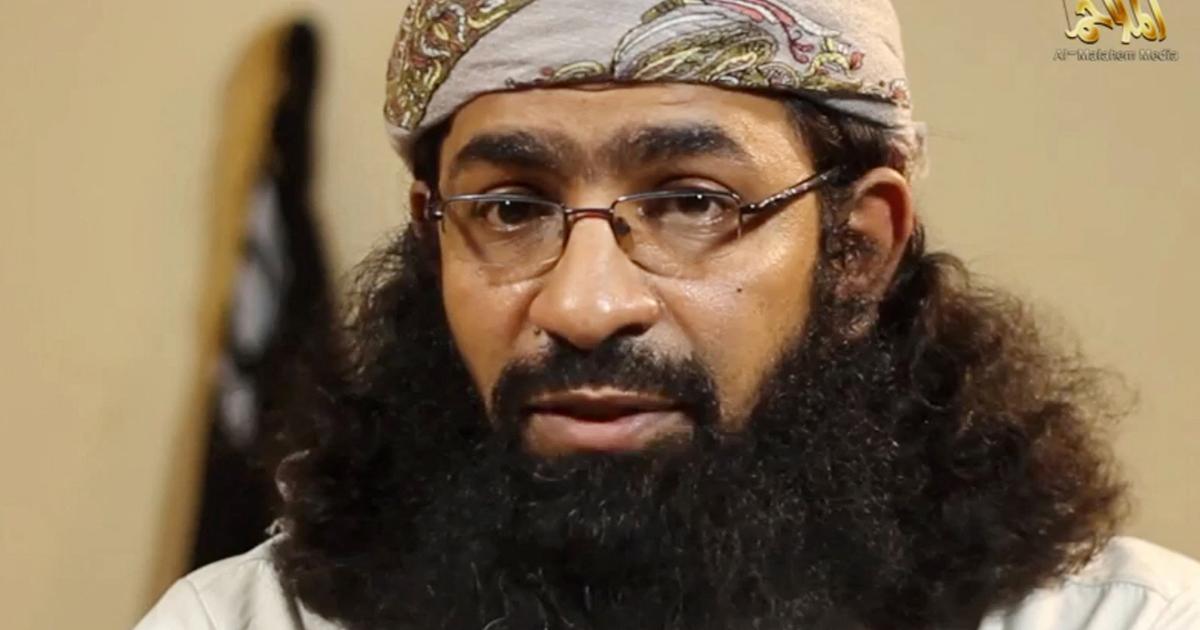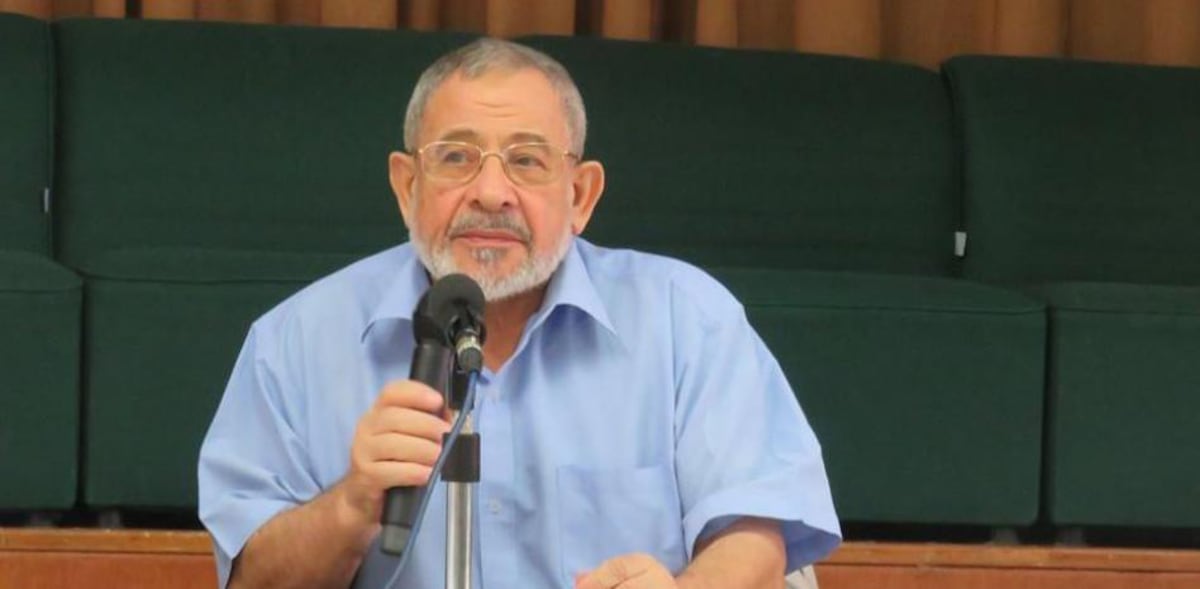Ayman-al Zawahiri, Osama bin Laden's right-hand man to leader of al Qaeda 3:48
(CNN) --
The death of Ayman al-Zawahiri during a US drone strike has raised questions about who will replace him as al Qaeda's leader.
This is how Joe Biden and his team decided to eliminate Ayman al-Zawahiri, the world's most wanted terrorist
While the terror group is not without its contenders, its ranks are thinner and more geographically dispersed than they were 10 or 20 years ago.
This is what we know about who could be the next leader of al Qaeda.
the aspiring veteran
Saif al-Adel
The man indicated by many analysts to be Zawahiri's successor is Saif al-Adel, a former Egyptian commando who is one of the last survivors of al Qaeda's "founding generation" and has spent much of the past two decades in Iran.
Adel was a loyal servant of Osama bin Laden before serving as al Qaeda's interim leader in 2011. He arranged the succession process in Zawahiri's favor because that was bin Laden's wish, although Adel himself might have been a more effective option. as competition for the growth of ISIS in the following years.
Saif al-Adel is his nom de guerre, which translates to Sword of Justice.
That is not the only mystery about this man.
advertising
There are only a couple of alleged photographs of him.
It is said that he faked his death when he was 20 years old.
His situation in Iran has also not been entirely clear: sometimes detained, sometimes under house arrest, sometimes released.
Ali Soufan, a former FBI special agent and author of "Anatomy of Terror: From the Death of bin Laden to the Rise of the Islamic State," describes Adel as the ultimate insider, someone well connected in many countries and a cunning military man.
tactical.
For much of his adult life he has lived and breathed al Qaeda.
Soufan recently wrote in the Counter Terrorism Center's Sentinel magazine that Adel played "a central role in daring attacks from the 'Black Hawk Down' incident in Somalia to the bombings of US embassies in East Africa and the suicide attack on the destroyer USS Cole".
"When he does act, he does so with ruthless efficiency," Soufan added.
"Above all, he is a pragmatist, a man who would have known that, despite the abhorrent necessity of living under an anathema from the [Shia] government for Sunnis [al Qaeda], their best chance of survival and therefore continued effectiveness in jihad, lay in a return to Iran.
Soufan also notes that al-Adel was a mentor to the leader of al Qaeda in Iraq, Abu Musab al-Zarqawi, whose organization later morphed into ISIS.
“Saif as emir would enjoy a rare opportunity to draw some former Islamic State members back [to al Qaeda],” suggests Soufan.
Abdal-Rahman al-Maghrebi
The aspirants of the African branches
A UN expert report earlier this year argued that other al Qaeda leadership candidates were members of the organization's robust African branches.
He mentioned three possible candidates besides al-Adel: Abdal-Rahman al-Maghrebi;
Yazid Mebrak, head of al Qaeda in the Islamic Maghreb (AQIM), and Ahmed Diriye, leader of Shabaab in Somalia.
With Maghrebi, so to speak, everything would stay in the family, since he is Zawahiri's son-in-law.
But he is a Moroccan in an organization historically dominated by Saudis and Egyptians.
He was considered a Specially Designated Global Terrorist by the US State Department last year and described as the "longtime director" of As Sahab, al Qaeda's media operation.
He is 52 years old.
A wanted poster for Abdal-Rahman al-Maghrebi.
In documents uncovered at bin Laden's Pakistani hideout, another senior al Qaeda figure said Maghrebi "has high morals, can keep a secret and is patient. His ideology is prudent and he has an excellent conscience."
Mebrak, an Algerian, became the leader of AQIM in 2020. He is also known as Abu Ubaydah Yusuf al-Anabi.
In appointing him, the State Department said he was "expected to play a role in the global management of al Qaeda," like his predecessor as leader of AQIM.
What was Ayman al-Zawahiri's role in organizing the 9/11 attacks?
He is a veteran of jihad in the Sahel, where al Qaeda and ISIS groups vie for superiority.
A wanted poster for Yazid Mebrak.
Another offshoot that has survived despite the best efforts of the United States and a multinational force from East Africa is al Shabaab in Somalia.
It has been prone to internal rifts and its fortunes have changed a lot, but it has survived the challenge of the fledgling ISIS.
Diriye has been its leader since 2014, a term of unlikely longevity.
Shabaab and al Qaeda have been linked for a decade and Diriye was quick to pledge allegiance to Zawahiri when he became leader.
For al Qaeda, the appointment of a leader from Africa would be a cultural leap.
Some former al Qaeda members say senior Egyptian and Saudi figures within the organization often looked down on African branches.
Al Qaeda has had only two leaders and the current status of its governing Shura (council), which played a key role in Zawahiri's election, is difficult to discern.
When Zawahiri was selected, he had already been anointed by bin Laden as his successor, but it still took some time to obtain the "bayat" (oath of allegiance) from remote council members.
The main assumption among analysts is that members of the Shura may begin in the coming weeks to declare the bayat to the third leader of al Qaeda.
But the field of potential contenders has shrunk over the years, especially with the death of bin Laden's son Hamza and the assassination in Iran of another leading al Qaeda figure, Mohammed al Masri.
Al Qaeda's leadership in the Arabian Peninsula, based in Yemen, has also been decimated by US and Saudi operations.
Can al Qaeda reinvent itself?
Yet there may be opportunities for al Qaeda to reinvent itself, whether Adel becomes the next leader or al Qaeda turns to the next generation of battle-hardened African jihadis.
The UN panel of experts on international terrorism believes that "the international context is favorable for [al Qaeda], which seeks to be recognized again as the leader of global jihad."
As ISIS has declined in the Middle East (although it retains a deadly presence through its African affiliates and has survived in parts of Syria and Iraq) "[al Qaeda's] propaganda is now better developed to compete with ISIL [ISIS]. ] as the key actor inspiring the international threat," the UN experts concluded.
Within Afghanistan, al Qaeda's predominant presence has been in the south and east, though UN experts noted that it may be seeking to establish a presence in western provinces bordering Iran.
Al Qaeda is not without friends inside Afghanistan, beyond its long historical ties to the Haqqani Network, a powerful actor within the Taliban regime.
Its affiliates in Central Asia, such as the Turkistan Islamic Party, also maintain a presence.
It seems likely that regardless of who succeeds Zawahiri, the group's leadership will continue to have its center of gravity in Afghanistan as long as the Taliban rule the country, even if many of their operations take place thousands of miles away.
The task of the successor will be to restore the group's relevance while leveraging disparate franchises across Asia, Africa and the Middle East, and perhaps inspiring a new generation to carry out attacks on its behalf in Western cities.
Al Qaeda











/cloudfront-eu-central-1.images.arcpublishing.com/prisa/KMEYMJKESBAZBE4MRBAM4TGHIQ.jpg)


